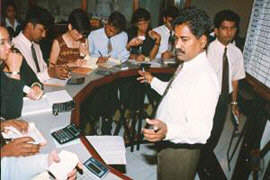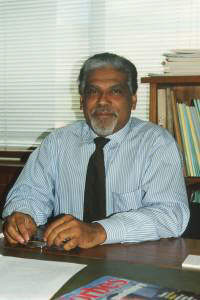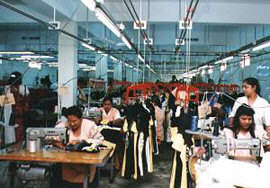 New listing rules for the Port-Louis Stock Exchange New listing rules for the Port-Louis Stock Exchange |

There are plans to introduce new listing
rules for the Port-Louis Stock Exchange. This will allow Mauritius to participate with
other SADC Stock Exchanges, in the project of harmonisation of listing rules, which will
in turn facilitate cross-border listing in the future. The new listing rules will call for
disclosure requirements from listed companies along the same lines as those of more
sophisticated markets and thus bring them to international standards

Alongside, the Government of the Republic of Mauritius is encouraging
the private sector to invest, in the spirit of economic integration of the region. Mr Raj Makoond, director of the Joint Economic Council, and
spokesman of the dynamic Mauritian private sector said on that issue and on foreign
investments:« The economy of Mauritius over the last number of years has
evolved in such a way that now to be able to attract FDI, we need really an environment
which is different from the conventional attraction of FDI in a given sector or incentive
driven FDI. What we need now: strategic alliances with Mauritian companies to go and
invest in a large manner, for example in Mozambique or in Madagascar- provided it offers
more advantages. In order to get that type of FDI for strategic alliances, we need a
different environment as opposed to the conventional incentives of corporate tax
investments. Other competitive edges are required and this is where I see we will move
from the concept «Made in Mauritius» to «Made by Mauritius».
For Mr. Makoond it is necessary to reengineer the Private Sector. «
our Sugar Sector is now in Mozambique, in Ivory Coast, in Tanzania, in Malawi. Our
textiles is present in Africa, in Madagascar, our tour operators are present in Zimbabwe
and our banking sector in the whole of southern Africa and in India. So we are here about
a different context of FDI but enough to use the Mauritian edges to be able to be a
successful player within that region.»
In the particular case of Mozambique its government have agreed to give
to Mauritius an exclusive Economic Zone of 100, 000 hectares to be developed and all
Mauritian industrialists with their partners are most welcome to invest in these
countries. It is also the case with Namibia and there may have good deal between Mauritian
firms and foreign potential investors to do business in those countries. Other countries,
including Pakistan, Namibia and Botswana are also inviting Mauritian businessmen to launch
Joint Ventures in their countries. | On that regional issue, the Minister of Finance Dr Vasant Bunwaree said that
«Government, as a facilitator, fully supports these initiatives of the private sector and
I even announced the setting up of a Regional Development Certificate Scheme under which
Government will grant a special incentive certificate to companies investing in
member-countries of SADC, COMESA, IOC and IOR-ARC»

There are further investment opportunities that exist in Mauritius.
According to the minister of Commerce and
Industry Mr. Sunassee «the whole IT systems need to be developed and textileproducts that are «haut de gamme» with design
innovation, value added. Printing is another sector that is also interesting to us in
Mauritius, jewellery, fashion accessories which goes to the textile sector and then
anybody who believes that they have got a good project are welcome».
Along the same line Government has taken other measures to improve the
existing investment climate such as: a Permanent Residence Scheme for certain categories
of investors. A Board of Investment, a sort of one-stop shop, for the project approval
process thereby reducing substantially the long delays in processing and approving
investment projects. The issuing of work permits and others approvals is being dealt
quickly. The authorities are planning to issue multiple entry visas. «We have been
expanding our Investment Promotion and Protection Agreement network to enhance investors
confidence and significant efforts are being made to continuously upgrade infrastructural
facilities, particularly in the fields of telecommunication and IT, to keep up with
technological improvements» said the Finance
Minister Bunwaree.
Four main clusters with investment opportunities
According to Mr Raj Makoond of the Joint Economic
Council (JEC), there are four or five main clusters where investment opportunities
will be an advantage. «Sugar industry where we have a lot of know-how in production and
in management. Textiles is another cluster, not only in terms of production but also
because of access to EU market. Because of the quality- we can go there, produce and sell.
Third, we hold the view that because we speak a number of languages - both European and
Asian languages, we have an advantage. The last one is about information technology,
whereby we can do some connection with Bangalore in India and can do software re-writing
being bilingual, programming in French for the West-African market. That is a cluster that
can emerge. Language and IT are what I call emerging clusters where as Sugar and Textiles
are existing clusters. Otherwise our link with Europe which can be used to go to Africa,
in terms of real business, is important.» |

